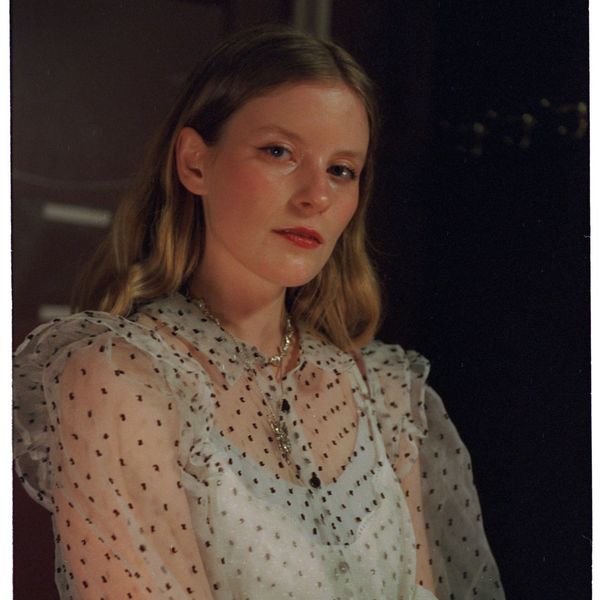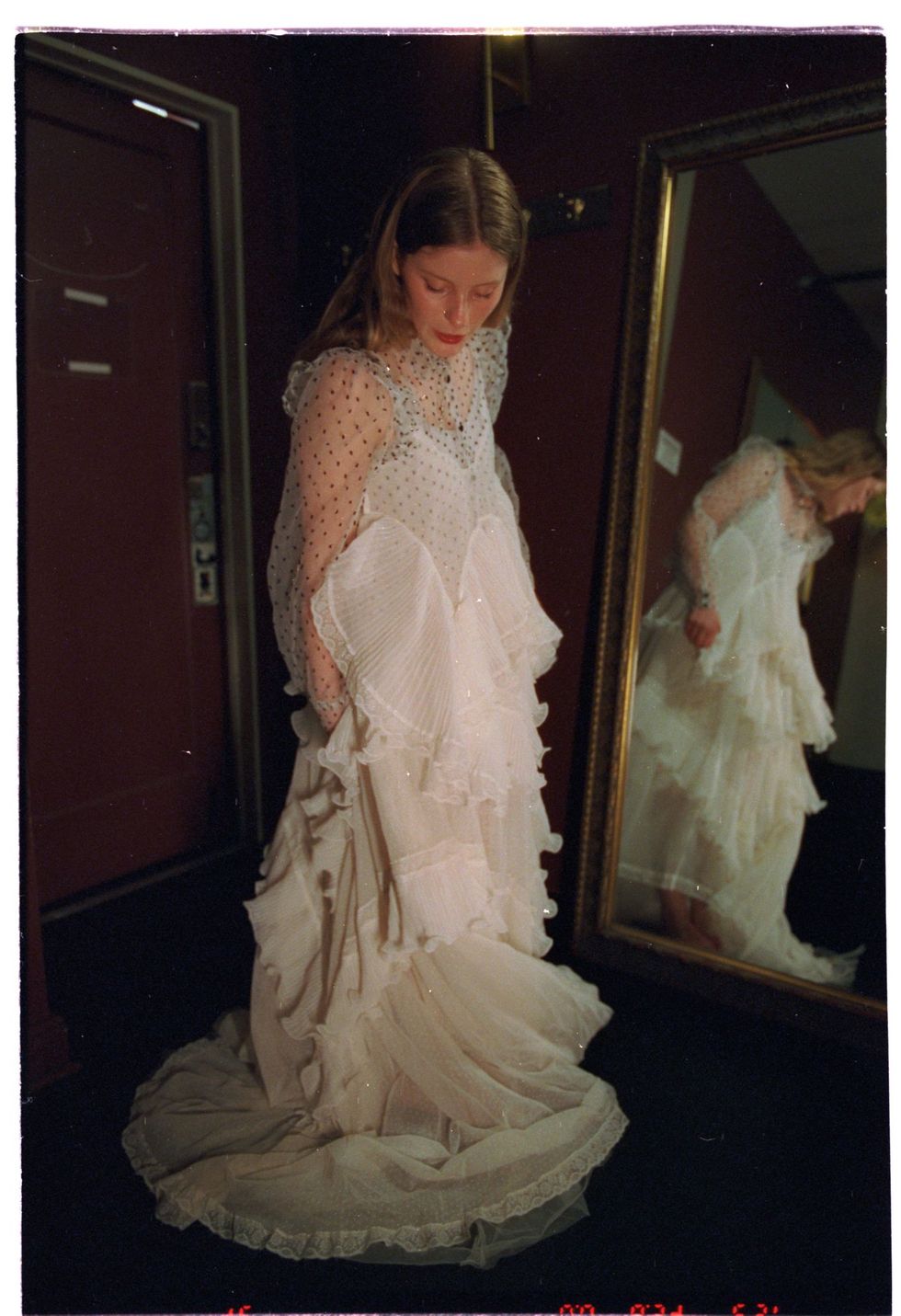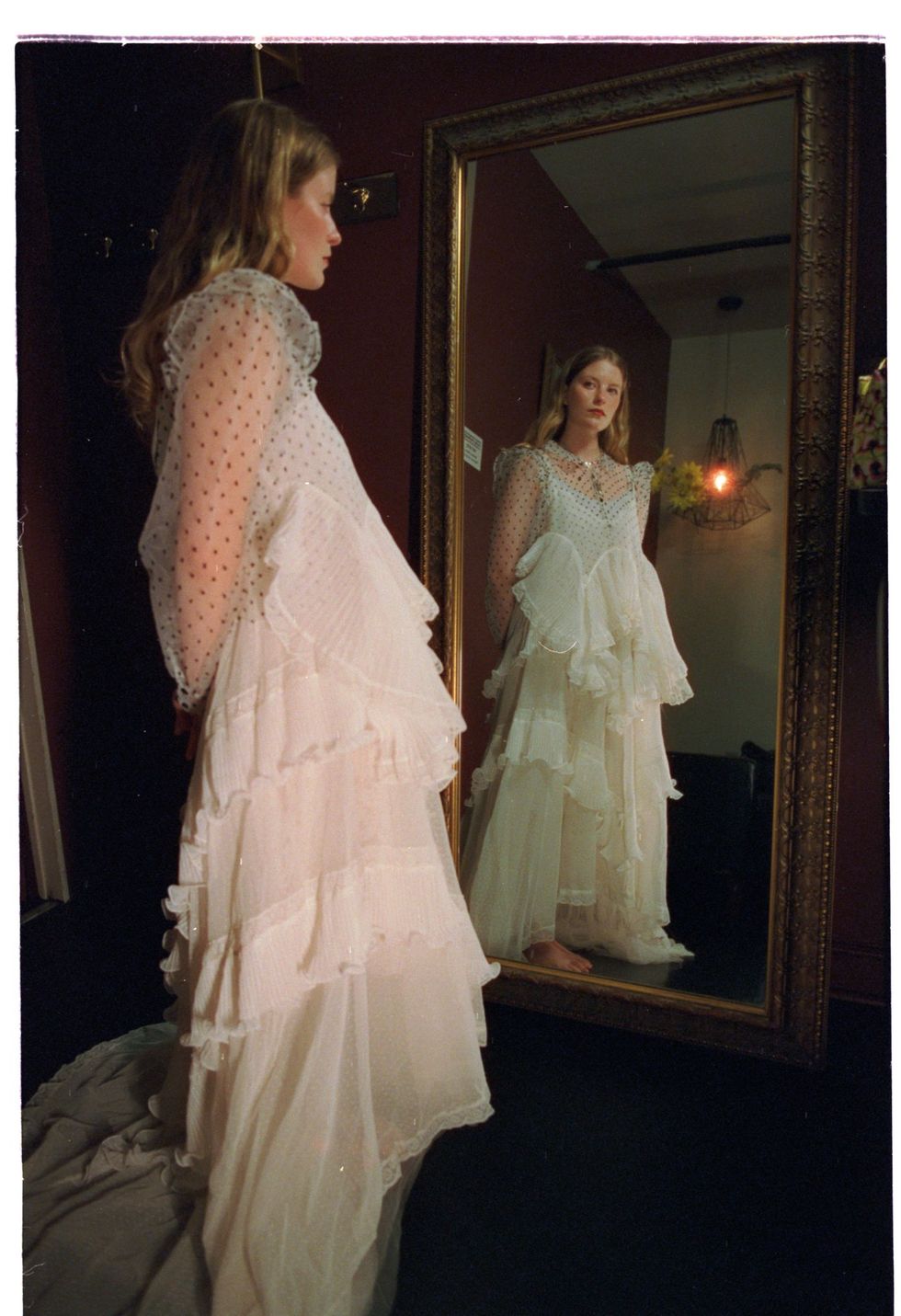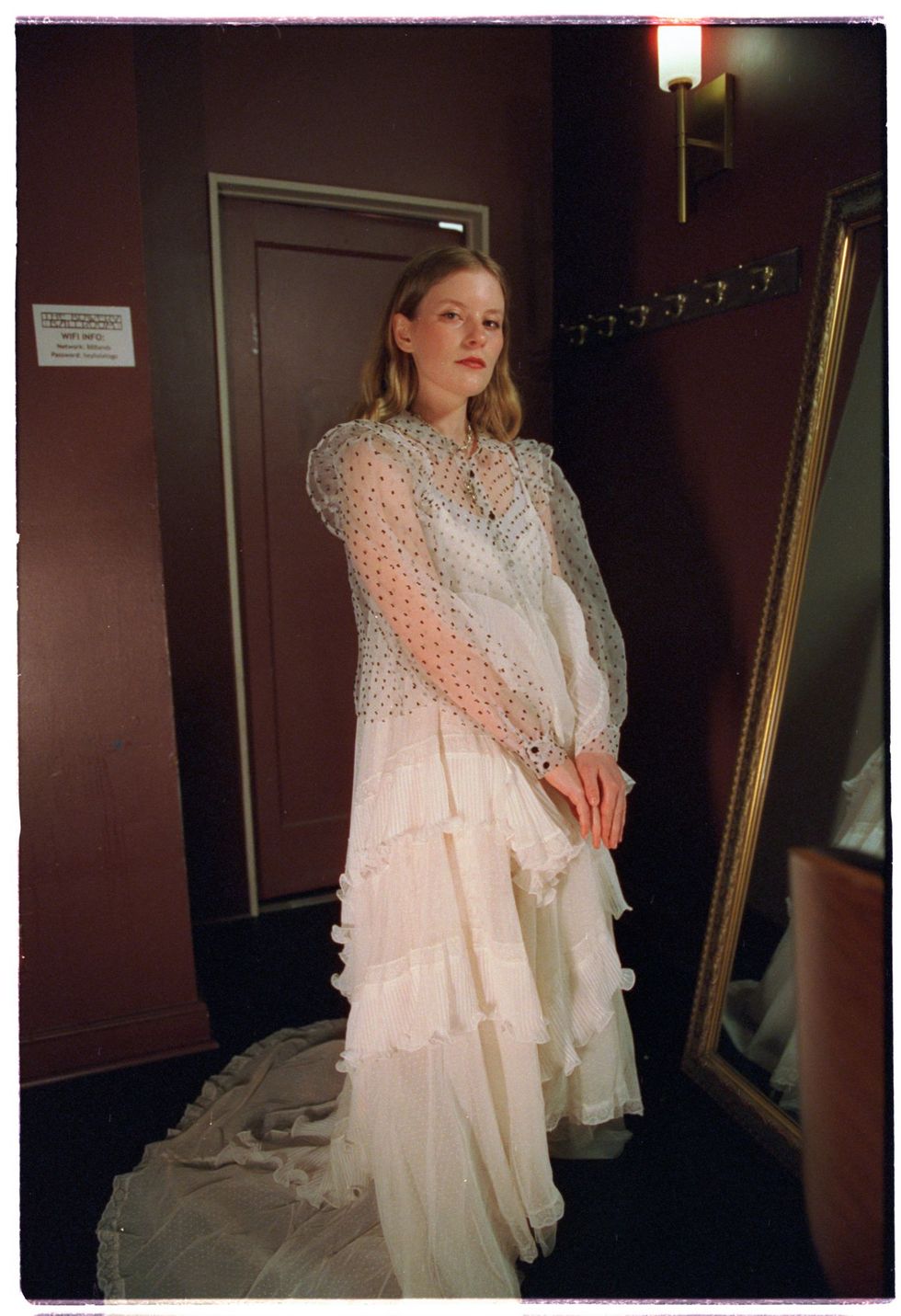
Paris Paloma Writes Her Own Story
Jul 23, 2024
Paris Paloma's "the warmth" hits you like an echo from another time. Slow crawling with hypnotic strings swimming in echoing harmonies, each flourish is haunting and medieval, a testament to Paloma's timeless songwriting. History be damned, however, since to her fans, Paloma's moment is now — a sentiment they, as the singer-songwriter, took the stage at New York City's Bowery Ballroom for her first US tour.
Sitting in the balcony a few hours before the show begins, I tell her about the fans already waiting for her outside. Dressed in boho chic floor-grazing dresses and lace, a cult-like queue was clearly hoping to get in early and press themselves up against the stage, regardless of the scorching temperatures outside. Paloma is immediately worried about her congregants, wondering if she should instate a no-queuing policy in hopes of keeping them hydrated and safe from fainting during the show. But according to the story she beams as our interview begins, they're pretty keen to get close to Paloma.
"We had soundcheck around 4 PM and I saw these two girls walking in, and they both had on flowy white skirts," she laughs. "They're so sweet, they were not slick. They saw me, they saw the empty room, then they just snuck into the stairwell." A manager had to politely ask them to leave, though it was clear they were just trying to stake their claim at the front of the stage. Later, as she sings her viral-track-cum-accidental-anthem-for-women's-rights, "Labour," and they sing the words, "You make me do too much labor" in unison, the looks on their faces hint at the risk being worth it.
.
Sitting beside PAPER, in an empty pre-show venue, Paloma is in jeans and a t-shirt, a stark contrast to the sheer white billowy dress she'll be donning on stage. As we chat, her demeanor is meek and giggly, a stark contrast to the big, bright voice I'll be hearing as it bounces off the walls of the Bowery later that night. The track was released in March of 2023 but has since gone viral again, when Harrison Butker, kicker for the Kansas City Chiefs, made misogynistic remarks (i.e., women should be more excited about marriage and babies than careers, etc.) during a commencement speech.
"Having it take on this second life was so needed for me," Paloma says. "No one prepares you for that level of virality and visibility online. When it happened the second time, I felt more equipped and had the stability to meet my fans where they're coming from. The first time it was such an overwhelming feeling. The second time I could appreciate it while it was happening." The track has created an impassioned response online, reaching 100 million streams on Spotify and soundtracking countless TikTok videos with captions like "oldest daughter," "mommy issues" and "all day everyday therapist."
"I'm not really good at diagnosing what people like about my music," Paloma says when I ask why she thinks the song is resonating with so many people. "I don't like to think too hard about it. Some people say it's because of its simplicity. People can find what they need to find in it. There are people who have experiences I've never had that are using the song, which is so wonderful. They're using it to explain their experience. The timing when it came out was also important. It wasn't intentional but it was at a time when the discussion of the labor balance in relationships was becoming more and more discussed." Now, playing it live, she gets to thank her fans in real time for the song's success, likening this to "falling and knowing someone is going to catch you."

Much of the connection Paloma has with fans — particularly US fans who are seeing her for the first time during this tour — has happened online (she even released a version of "Labour" featuring more than 100 vocals from fans). However, there have been times when the message she sends out doesn't quite reach the audience she intends to hear it. "There was a moment when transphobes were having a moment on social media when they were attempting to use 'Labour.' Luckily my listeners know that's not something I stand by, that I would crush as soon as possible, and all my trans followers know that."
On August 30, Paloma will be releasing her debut album Cacophony, and she's been teasing some of tracks during her live performances. "I keep forgetting that aren't singles that people aren't familiar with. There's always a degree of curiosity when you're releasing new music. Seeing what people may identify with and whether they'll take what you were feeling when you wrote the song or if it will be some other exciting thing."

Paloma has been working on her debut for the last two years, so it took piecing together the story that was "already there" to decide which tracks would make the cut and in what order.
"It's almost like therapy," she says. "The story is already there you're just seeing what it means to yourself and by extension, other people." Speaking of therapy and vulnerability, I wonder: Are any tracks she's nervous to share with the world, after having it to herself for so long? "There's a song called 'Pleaser' on the album that I produced myself," she says. "There's a degree of nerves because I've worked with so many amazing producers and this is the one I worked on by myself with my own production techniques. I had no budget and made it from my [university] room. I wanted to do that as a nod to where I started. 'Pleaser' is also a song written at a sad time in my life, and looking back on it with a lot more self-awareness is funny. It's about feeling like you're perpetually giving more and loving more in relationships and never having your cup filled by people you choose to love. Looking back on it, I would say it has everything to do with who I was choosing to pursue friendships and relationships with. That comes from not knowing yourself very well."
Listeners of Cacophony will be able to hear the stories behind Paloma's first two years of adulthood; right before she got "out of the woods," she tells me of some things she was working through regarding her life and mental health. "It's not linear," she adds. "It's going to continue going and there will be new difficulties, I'm sure. But this is a story about my mental growth and working through things that happened in my teens and young adulthood and the grief and pain and immense self-questioning that we start with. It kind of follows the hero's journey and reaches a place of hope, acceptance, and warmth at the end."

As city sirens echo outside the window and our interview runs to a close, I ask her how she hopes people feel when they hear her debut. "I want people to feel held," she says. I" think that music's purpose is to sit with people in their loneliness, in those emotions that make you feel isolated and unheard. But when you listen to music you're being held by another person. That's the point."
Photography: Erica Snyder
Related Articles Around the Web
MORE ON PAPER
ATF Story
Madison Beer, Her Way
Photography by Davis Bates / Story by Alaska Riley
Photography by Davis Bates / Story by Alaska Riley
16 January
Entertainment
Cynthia Erivo in Full Bloom
Photography by David LaChapelle / Story by Joan Summers / Styling by Jason Bolden / Makeup by Joanna Simkim / Nails by Shea Osei
Photography by David LaChapelle / Story by Joan Summers / Styling by Jason Bolden / Makeup by Joanna Simkim / Nails by Shea Osei
01 December
Entertainment
Rami Malek Is Certifiably Unserious
Story by Joan Summers / Photography by Adam Powell
Story by Joan Summers / Photography by Adam Powell
14 November
Music
Janelle Monáe, HalloQueen
Story by Ivan Guzman / Photography by Pol Kurucz/ Styling by Alexandra Mandelkorn/ Hair by Nikki Nelms/ Makeup by Sasha Glasser/ Nails by Juan Alvear/ Set design by Krystall Schott
Story by Ivan Guzman / Photography by Pol Kurucz/ Styling by Alexandra Mandelkorn/ Hair by Nikki Nelms/ Makeup by Sasha Glasser/ Nails by Juan Alvear/ Set design by Krystall Schott
27 October
Music
You Don’t Move Cardi B
Story by Erica Campbell / Photography by Jora Frantzis / Styling by Kollin Carter/ Hair by Tokyo Stylez/ Makeup by Erika LaPearl/ Nails by Coca Nguyen/ Set design by Allegra Peyton
Story by Erica Campbell / Photography by Jora Frantzis / Styling by Kollin Carter/ Hair by Tokyo Stylez/ Makeup by Erika LaPearl/ Nails by Coca Nguyen/ Set design by Allegra Peyton
14 October




